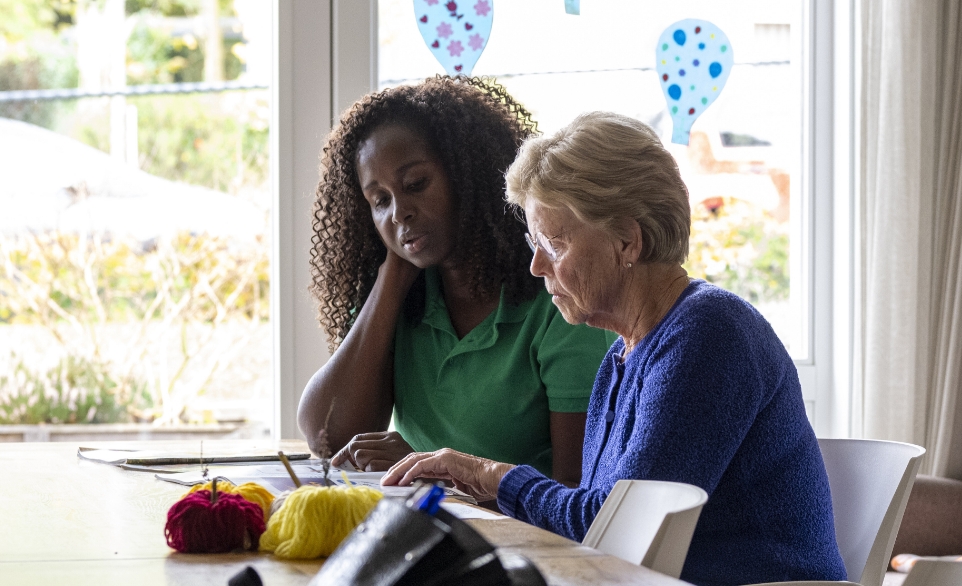
Social value. It’s one of those terms that shows up in every bid now — and yet most care providers either overcomplicate it or completely undersell themselves.
If you’ve ever looked at a social value question and thought, “What do they even want from me?” — you’re not alone.
At Big Sister, we’ve helped hundreds of care businesses tackle this exact challenge. And here’s the truth: writing a strong social value section isn’t about ticking boxes or stuffing your answer with buzzwords. It’s about telling the story of your impact — clearly, honestly, and confidently.
Here’s how to do it — without the fluff, and without the jargon.
What Is Social Value (Really)?
Let’s start simple.
Social value is the additional benefit your business brings to the community, beyond the core service you’re paid to deliver.
For example:
- You’re paid to deliver domiciliary care.
- But you also hire local people, support apprenticeships, reduce isolation, and use eco-friendly transport.
That’s social value.
In bids, commissioners want to see:
- How you benefit society (social outcomes)
- How you protect the environment (sustainability)
- How you build the economy (local jobs, skills)
Step 1: Ditch the Generic Promises
The biggest mistake care providers make? Writing things like:
“We are committed to delivering outstanding social value and supporting the local community.”
That’s not enough. It’s vague, overused, and doesn’t prove anything.
Instead, think about what you actually do — or what you’re willing to commit to.
Ask yourself:
- How do we hire, train, and retain staff from the local area?
- What do we do to support young people, unemployed adults, or carers?
- Do we reduce our environmental impact — and how?
- Have we ever supported charities, community groups, or health initiatives?
Social value lives in the detail.
Step 2: Use the TOMs Model (But Speak Human)
Many tenders in the UK now follow the TOMs Framework – that’s Themes, Outcomes, Measures.
But don’t worry — you don’t need to quote it directly. You just need to cover the bases in plain English.
Here’s how that translates:
- Theme: Jobs and skills
→ “We support care apprenticeships through our partnership with [college name].” - Theme: Community
→ “We run monthly loneliness-busting lunches in [borough] for isolated older people.” - Theme: Environment
→ “We have a 20% mileage reduction goal for our care team in the next 12 months.”
You’re already doing more than you think — you just need to frame it through outcomes and action.
Step 3: Show Numbers Where You Can
Evaluators love evidence.
If you can attach numbers to your impact, even better. For example:
- “We’ve hired 18 carers from the local area in the last 12 months.”
- “Each apprentice receives 240 hours of shadowing and training support.”
- “We’ve saved 5,000 miles of driving per year by implementing zoned rostering.”
Can’t find any stats? Don’t panic. Make clear, specific commitments instead.
- “We commit to hiring at least one apprentice each year.”
- “We will offer three free dementia awareness sessions for the local community in year one.”
- “We will partner with a local sustainability group to audit our environmental impact annually.”
Step 4: Link It to the Community You’re Bidding For
Social value is local. If you’re bidding for a framework in Manchester, don’t talk generically about “UK impact.”
Show you understand the area:
- Reference borough priorities or local health strategies.
- Mention partnerships with nearby colleges, charities, or community groups.
- Tailor your commitments to local needs — for example, “We will attend [Council’s] Employability Fair to offer care sector insight.”
The more relevant your answer is, the higher you’ll score.
Step 5: Write Like You Talk (Then Tighten It)
You don’t need to sound corporate. In fact, natural language often scores better because it’s clear and believable.
Try writing your first draft as if you’re explaining it to a commissioner over coffee. Then, tighten it up.
Bad example:
“Our organisation aims to synergistically drive social value outputs by implementing robust people-first strategies.”
Better example:
“We’re proud to create jobs for people who live locally, and we offer structured training to help them grow into senior roles.”
Sound like a human. It helps the reader trust you.
Bonus Tip: Let Big Sister Do the Heavy Lifting
Struggling to say what you mean? We’ve got you.
Our social value bid specialists — including Ima Johnstone, who leads our sustainability approach — work with homecare providers across the UK to develop tailored, powerful, and fully compliant social value responses.
Whether you:
- Need a full social value section written from scratch
- Want a second pair of eyes on a draft
- Or just want to brainstorm ideas that match your service and budget
We’re here to help.
And yes — we even measure your impact and provide reporting templates, so you’re ready for contract monitoring once you win.
Explore the ‘Care for the Future’ Initiative
Want to go further than one bid?
Our Care for the Future programme supports care providers in embedding sustainability and social value across their business. We offer:
- Accreditation
- Video guides
- Templates
- Community connections
- A bid library full of high-scoring examples
Watch the full YouTube series on @bigsistercare
Follow @bigsisterhomecare on Instagram for regular tips
Final Word: It’s Not About Being Perfect — It’s About Being Real
No care provider is doing everything. And that’s okay.
Social value isn’t about being flawless — it’s about being thoughtful. It’s about understanding the difference you can make and being willing to try.
Download our brochure or book a call
With the right framing, the right commitments, and the right support — your social value section can win you the contract.
And if you need a guide? Big Sister is always in your corner.













